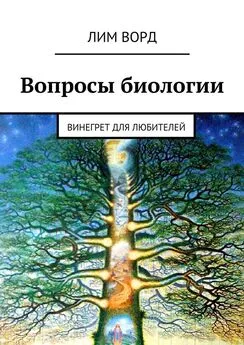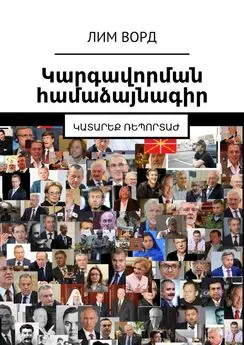Лим Ворд - Библия Времени. Найди свое
- Название:Библия Времени. Найди свое
- Автор:
- Жанр:
- Издательство:неизвестно
- Год:неизвестен
- ISBN:9785449318695
- Рейтинг:
- Избранное:Добавить в избранное
-
Отзывы:
-
Ваша оценка:
Лим Ворд - Библия Времени. Найди свое краткое содержание
Библия Времени. Найди свое - читать онлайн бесплатно ознакомительный отрывок
Интервал:
Закладка:
Ancient Rome
Seven centuries BC – the foundation of the capital. Two centuries – the royal period. Then – the Republic, invasion of the Gauls, geese, «grief defeated». The war with Great Greece – King Pyrrhus and the catastrophic Pyrrhic victory.
The First Punic War. The struggle with Carthage for Sicily, the foundation of the fleet after the model of a Carthaginian ship thrown ashore by the storm. The action is transferred to Africa, where the victories of the Romans entail euphoria, and then a serious defeat. Remnants of the army are evacuated, on the way back the fleet dies in a storm.
Actions are transferred to Sicily, where the troops of Carthage are commanded by Hamilcar Barca. The forces of the parties are depleted, the Carthaginian fleet is defeated by the curtain. Carthage pays a solid indemnity and renounces Sicily.
The Second Punic War – two centuries BC – Hamilcar Barca perishes, leaving three sons – Hannibal, Magon and Hasdrubal. Hannibal crosses to Italy through the Alps, defeats the Romans at Cannes, after a year tries to take Rome, but for some reason (a thunderstorm interpreted by both sides as the wrath of the gods, or the fall of a meteorite) the battle will not take place. The Romans seize the allied Carthage of Syracuse, and the great scientist of antiquity, Archimedes, dies. The Thirty-thousandth Corps of the Romans, under the command of Scipio of Africa, lands in Africa, makes alliances with local Libyan tribes, and defeats Carthage’s army. Hannibal runs to the king of Antioch, to the south of modern Turkey, takes part in battles against Rome, the second time after the battle of Zama, personally meets Scipio. Then he moves to become Armenia, independent of the Seleucids, where he leads the construction of the capital near modern-day Yerevan, then Bithynia (northern Turkey). The Bithynian king, wishing peace, decides to extradite Hannibal, but the Carthaginian general accepts the poison.
Fifty years of peace, all contributions paid, in 149 BC. the third Punic war begins. Violating the terms of the treaty, the Carthaginians rebuff the local tribe of the Libyans, the official ally of Rome. The thought of Cato the Elder, «Cartago dilindum ess» – Carthage must be destroyed, «repeated every time at a meeting of the Senate, becomes one of the motives for the existence of the Romans. Landed in Africa, the troops begin a siege. Three years later Carthage was taken, burned, plowed, covered with salt for 17 days, so that even the spirits of its former inhabitants could not appear here. The capital of the new Roman province of Africa is the city of Utica, located a few kilometers from the former capital of the eastern power, formerly a stronghold of Roman legionaries. The civilization of Puno-Phoenician Canaanites is almost completely destroyed.
…The Roman Republic, undergoing the tyranny of Sulla and Gaius Maria, hardly reflects the new invasion of the Gauls and Teutons. Then comes the rebellion of Spartacus. Ten years after the suppression of the mutiny, the Caesar-Pompeii-Crass triumvirate is created. Crassus, along with seven legions, perishes in Parthia, (modern Iran and Turkmenistan) formed from the Seleucid state.
Fifty years BC. – the rise of Caesar, the war in the territory of modern France, a brief invasion of Britain. With the death of his wife Pompey, daughter of Caesar, the relative and spiritual ties break down, the commander crosses the Rubicon River, captures Rome. Civil war takes more than a quarter of Roman male citizens. Pompey is trying to hide in Egypt, but is dying off the coast of the Mediterranean Sea under unclear circumstances.
Caesar starts a romance with the heiress of the pharaohs Cleopatra, which, in the end, leads to the inclusion of Egypt in the composition of Rome.
Ancient China
Two hundred years BC. – After the death of Shihuandi in the Han empire, Confucianism is reborn (jusue, school of scribes) – a philosophy that replaces China with religion. Han exists for six hundred years, it is replaced by the Jin dynasty. With it, in the fourth century, North China is captured by the Huns. Two centuries, the Chinese assimilate them, turning into themselves, so that the next dynasty restores the state in full.
…A new series of wars, enlargement of kingdoms, crushing, eventually leads to the emergence of a flourishing, very advanced Tang Empire (636—907), in the east of modern China. The dynasty controls part of Central Asia – Sogdiana, the territory of present-day Tajikistan, Turkmenistan and Uzbekistan. A native of these regions, the border governor of the «tszedushi» in the service of the emperor, An Lushan persuades the latter to replace a significant number of officers of the «titular nation» at the court with the mercenaries who were loyal to the Sogdian. The further move is the almost unhindered formation of our own army, a campaign to the capital of Chang’an (now the sub-provincial Xian, the location of the famous terracotta army of Qin Shihuandi). Next – a series of intrigues, battles, invasions, wars of all against all, for the emperor, the idea, finally just for food. Soldiers, or simply murderers, are women and children. The greatest city of that time, with a million population, because of the specially thought-out layout of the quarters resembling a chessboard, Chang’an turns into a pile of ruins. All roads of the country are filled with corpses. Water in the lakes for months retains a purple color. According to pedantic census-takers and tax collectors, China’s 50 million people of that time are losing 36 million of their inhabitants. Perhaps some of them do not die, but simply move to another area, however, the An Lushan revolt is considered the largest (after World War II) armed conflict in terms of the number of victims in the history of mankind.
Under the Song dynasty, in the 12th century, China captured the South Manchurian tribe of the Jurchens, bringing the country to a new round of assimilation. In the beginning of the 13th century, almost 300 thousand army invaded the Middle Kingdom from the North. With each new campaign, the Mongols are moving farther south. Powder charges, rockets, primitive artillery are widely used, many millions die. The capital of Zhunda (Dadu) – modern Beijing was invaded in 1264, after 16 years, the whole of China is surrendered. The grandson of Genghis Khan, Khan Khubilai proclaims the creation of the Yuan dynasty, otherwise – Their Yuan Uls is the Great Yuan state. At the same time, four ulus of the Mongols emerge from under one government.
Expeditions to Japan and Vietnam are not successful: in the first case, in part, due to irresistible external (weather) reasons. For the first time in the world, paper banknotes of chao are massively and successfully introduced. The economy, however, is greatly feverish: most Chinese are enslaved, lose their skills and any enthusiasm, agriculture and trade are in decline, the most complicated irrigation system ceases to function.
In the middle of the fourteenth century, the secret organization White Lotus organizes the people to fight the invaders. The Mongols are pushed to the north, to their steppes. One of the leaders of the insurrection – the son of a peasant Zhu Yuanzhang – comes to power and establishes the Ming dynasty. This period is marked by the flowering of science, crafts, shipping, etc. Organized in particular, a huge ocean expedition led by Admiral Zheng He. The «Golden Fleet» consists of 40—60 «treasure trove» baochuan, 117 meters long, 48 wide, and 200 escort ships of more modest size. The staff of the expedition is 27—28 thousand people.
A total of seven voyages, after which the ships are dismantled, the reports are destroyed. China adopts a strictly isolationist policy.
Meanwhile, the Jurchen from South Manchuria recall the past: at first they stop paying tribute to central China, then unite with Inner Mongolia and organize mass raids on the former metropolis. Moving farther south and west, they capture the last bastion of resistance – the island of Taiwan in 1683. Now China is named after the Manchurian dynasty and empire – Qing. Aliens try not to allow mixed marriages, but they do not oppose their culture to the local, and quickly become Chinese. By the beginning of the 19th century the population of Qing was 300 million people.
Chinese goods are in great demand in Europe, however, the Chinese recognize only silver and gold as payment, as well as Russian fur and Venetian glass. This approach to doing business is completely unhappy with the British, who bring into China from India a product that is becoming more and more popular among all segments of the population – opium. Sun-dried milky juice of immature bollocks of opium poppy contains morphine, codeine, narcotin and another 17 alkaloids. By 1830 the sales volume reaches 1500 tons, 35% of the population become drug addicts. The Chinese emperor introduces a ban on this simple happiness, after which his empire is attacked by the main drug dealer – Great Britain. China loses the war, pays a huge contribution, passes the winner to Hong Kong Island (formally rented for 99 years).
In 1851, the Taiping uprising is taking place, organized by the Chinese Christian Hun Xucuan. The idea is the expulsion of the Manchus, the foundation of the Taiping Kingdom of Heaven (Taiping Tian Guo), or, otherwise, the Heavenly Kingdom of Great Tranquility (or «Welfare»). The millionth Christian army of the Taiping is distinguished by its iron discipline, at the same time, by the humane attitude to the local population, the absence of robberies and cruelties. The basis of society in the occupied territories is a community of 25 families, other hierarchies and estates, as well as religions, are being eliminated.
After twelve years of this confrontation, marked by the emergence of new foci of insurgencies, the Second Opium War is taking place – approximately in the same scenario, and with a similar result. In everything there is both bad and good; for example, China is completely out of international isolation.
Hong Xiu-chuan, hardly from the very beginning of the Liberation campaign, withdraws from worldly affairs, gives himself up to prayers and meditations. Meanwhile, his generals continue to struggle, including, among themselves. Also, considering Europeans as brethren by faith, the Taiping can not figure out why those – English and French – turned against them with weapons. Recall, the army of the Kingdom of Heaven, categorically prohibits smoking opium and, moreover, zealously destroys everything connected with Buddhism, Confucianism and Taoism. Eventually, the besieged capital of the Taiping, Nanjing, disappears in a huge fire, Hong Xiu-suan commits suicide, his son, the young heir to the throne, ends his life on the block. The last units of the Heavenly Kingdom, after a desperate attempt to storm Peking, perish on August 16, 1868.
In total, during the Taiping uprising, 20 to 30 million people were killed. The Chinese authorities, up to the present day, are trying to limit the spread of Christianity. So, in 1900, during the uprising of theirs, the supporters of traditional beliefs, as a rule of Buddhism, destroyed almost all Christians of Beijing (the Chinese). At the same time, China occupies the forces of Germany, Russia, Japan, win, receive an indemnity of 450 million silver lans (ingot in 31 grams), open the Celestial world even more fully.
In 1908, the throne rises two-year-old Emperor Pu I. Three years later flashes the so-called. Wuchang Uprising, which, in the end, leads to the collapse of the Qing Empire and the proclamation of the Chinese Republic. Then Tibet and Mongolia depart from China.
Aisingoro Pu Yi, who was Henry, as the European teacher called him, and Xundi – «The Forsaken Emperor» – since 1932 the emperor of the puppet republic Manzhou-go, formed by the Japanese. In 1945, captured by a Soviet airborne near Mukden, was held in a prison camp near Khabarovsk, testified at the Tokyo trial as a witness. Returned to China, 9 years re-educated through the system of Mao Zedong, then released. He worked in Beijing, first in the botanical garden, then modest archivist in the national library
Читать дальшеИнтервал:
Закладка:










